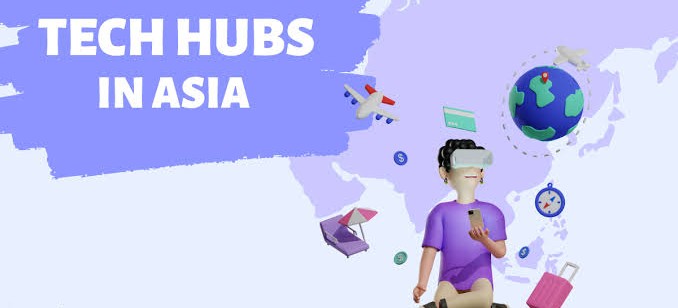This overview highlights Asia's diverse tech hubs, showcasing their contributions to innovation, entrepreneurship, and economic development in the global tech landscape.
Asia is rapidly evolving as a global leader in technology innovation, driven by dynamic ecosystems, government support, and a growing pool of skilled talent. From established hubs to emerging centers, Asia offers a diverse landscape for tech startups, investors, and multinational corporations seeking opportunities in the digital economy. Here’s a look at the top 10 emerging tech hubs in Asia, each contributing uniquely to the region's technological advancement and economic growth.
1. Bangalore, India: The Silicon Valley of India
Bangalore, often dubbed as the Silicon Valley of India, continues to lead Asia's tech revolution. Home to numerous multinational tech giants and startups alike, Bangalore boasts a vibrant ecosystem supported by top-tier educational institutions like the Indian Institutes of Technology (IITs) and a robust network of incubators, accelerators, and venture capital firms. The city's strengths lie in software development, IT services, biotechnology, and emerging fields such as artificial intelligence (AI) and blockchain technology.
2. Shenzhen, China: Innovation Capital of China
Shenzhen has transformed from a fishing village into China's innovation capital, renowned for its electronics manufacturing and hardware innovation. The city hosts tech giants like Huawei, Tencent, and DJI, alongside a thriving community of startups focused on IoT (Internet of Things), robotics, and advanced manufacturing. Shenzhen's proximity to Hong Kong also facilitates international trade and investment, making it a key player in global tech supply chains.
3. Singapore: Gateway to Southeast Asia's Tech Ecosystem
Singapore has positioned itself as a gateway to Southeast Asia's burgeoning tech ecosystem, offering a conducive environment for startups, multinational corporations, and investors. Known for its business-friendly regulations, robust infrastructure, and government support through initiatives like the Smart Nation program, Singapore attracts talent and capital across sectors such as fintech, biotech, cybersecurity, and smart city solutions.
4. Seoul, South Korea: Technology and Innovation Hub
Seoul, the capital of South Korea, is a hub for technology and innovation, driven by leading electronics conglomerates like Samsung and LG. The city's advanced infrastructure, high-speed internet connectivity, and strong R&D capabilities foster growth in sectors such as electronics, semiconductors, gaming, and AI. Seoul's vibrant startup ecosystem benefits from government initiatives and strategic partnerships with global tech firms, positioning it as a key player in Asia's tech landscape.
5. Ho Chi Minh City, Vietnam: Emerging Startup Hub
Ho Chi Minh City, Vietnam's economic powerhouse, is rapidly emerging as a startup hub in Southeast Asia. With a young and tech-savvy population, supportive government policies, and a growing number of co-working spaces and incubators, the city attracts entrepreneurs focusing on e-commerce, fintech, logistics, and software development. Ho Chi Minh City's strategic location within ASEAN (Association of Southeast Asian Nations) enhances its appeal as a gateway to regional markets.
6. Bengaluru, India: Innovation and Entrepreneurship Hub
Bengaluru, known for its innovation and entrepreneurship culture, continues to be a hotspot for tech innovation in India. The city's ecosystem thrives on the presence of multinational tech companies, research institutions, and a vibrant startup community. Bengaluru excels in areas like software development, AI, biotechnology, and aerospace, supported by initiatives from the state government and collaborations with global tech leaders.
7. Tokyo, Japan: Technology and Robotics Hub
Tokyo, Japan's capital, is renowned for its advanced technology and robotics industry. The city hosts major tech corporations like Sony, Toyota, and SoftBank, driving innovation in robotics, electronics, automotive technology, and IoT. Tokyo's research institutions, including the University of Tokyo and Tokyo Institute of Technology, contribute to cutting-edge R&D initiatives and collaborations with international partners, reinforcing its status as a leading tech hub in Asia.
8. Jakarta, Indonesia: Southeast Asia's Digital Economy Hub
Jakarta, Indonesia's bustling capital, is at the forefront of Southeast Asia's digital economy revolution. The city's large and youthful population, coupled with increasing internet penetration and mobile adoption, fuels growth in e-commerce, digital payments, fintech, and on-demand services. Jakarta's startup ecosystem benefits from government support and strategic partnerships with global tech firms, driving innovation and entrepreneurship across various sectors.
9. Taipei, Taiwan: Innovation in Hardware and Semiconductors
Taipei, Taiwan's capital, is renowned for its expertise in hardware manufacturing, semiconductors, and electronics. Home to tech giants like ASUS, Acer, and TSMC (Taiwan Semiconductor Manufacturing Company), Taipei fosters innovation in ICT (Information and Communication Technology), IoT, and green technology. The city's strong engineering talent pool, supportive government policies, and strategic location within East Asia contribute to its prominence as a hub for technology and innovation.
10. Kuala Lumpur, Malaysia: Emerging Tech Ecosystem
Kuala Lumpur, Malaysia's vibrant capital, is emerging as a key player in Asia's tech ecosystem. The city's strategic location, multicultural workforce, and government incentives attract tech startups and investors focusing on fintech, e-commerce, digital services, and smart city solutions. Kuala Lumpur's growing startup community benefits from co-working spaces, accelerators, and funding opportunities, positioning the city as a dynamic hub for innovation and entrepreneurship in Southeast Asia.
Conclusion
Asia's tech hubs are pivotal in driving innovation, economic growth, and global competitiveness in the digital age. From established centers like Bangalore and Singapore to emerging players such as Ho Chi Minh City and Jakarta, these cities leverage their unique strengths, supportive ecosystems, and strategic initiatives to foster technological advancements and entrepreneurial endeavors across diverse sectors. As Asia continues to evolve as a powerhouse of innovation, these tech hubs will play a crucial role in shaping the future of technology and driving socio-economic development across the region.
